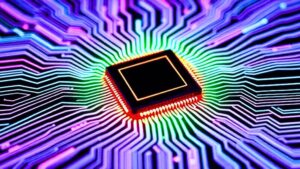Japan is on the brink of groundbreaking advancements in biotechnology as it embarks on experiments involving human-animal hybrids. This controversial research, led by renowned stem cell scientist Hiromitsu Nakauchi, aims to address the pressing issue of organ shortages by exploring the potential of growing human organs within animal hosts. The approval of these experiments marks a significant shift in Japan’s regulatory landscape concerning hybrid embryo research.
#1
Understanding Human-Animal Hybrids
Human-animal hybrids, or chimeras, are organisms that contain cells from both humans and animals. The primary focus of Nakauchi's research is to develop animal embryos—specifically rats and mice—capable of growing human organs. The ultimate goal is to create viable organs for transplantation, which could save countless lives.
#2
The Research Framework
The Japanese government recently relaxed restrictions that previously limited the growth of animal embryos containing human cells to just 14 days. This change allows researchers to bring these hybrids to term, enabling a more comprehensive study of their development. Nakauchi's team plans to inject induced pluripotent stem (iPS) cells—cells that can differentiate into any cell type—into genetically modified rodent embryos that lack the ability to form specific organs, such as the pancreas.
#3
Bioethicists have emphasized the importance of proceeding cautiously. Tetsuya Ishii, a science-policy researcher at Hokkaido University, advocates for open dialogue with the public to alleviate fears surrounding these experiments. The careful approach taken by Nakauchi and his team aims to build trust and understanding as they navigate this complex scientific frontier.
Ethical Considerations
The prospect of creating human-animal hybrids raises significant ethical questions. Critics argue that this research could lead to unforeseen consequences, such as the development of animals with human-like cognitive abilities. To address these concerns, strict guidelines have been established. For instance, if more than 30% of a rodent's brain is found to contain human cells during development, the experiment will be halted.Bioethicists have emphasized the importance of proceeding cautiously. Tetsuya Ishii, a science-policy researcher at Hokkaido University, advocates for open dialogue with the public to alleviate fears surrounding these experiments. The careful approach taken by Nakauchi and his team aims to build trust and understanding as they navigate this complex scientific frontier.
#4 Nakauchi's research is still in its early stages. Initially, his team will focus on growing hybrid mouse embryos for 14.5 days and rat embryos for 15.5 days, allowing them to monitor organ formation closely. After this phase, they plan to seek approval for similar experiments involving pigs, which may offer larger organs suitable for transplantation.
Nakauchi's research is still in its early stages. Initially, his team will focus on growing hybrid mouse embryos for 14.5 days and rat embryos for 15.5 days, allowing them to monitor organ formation closely. After this phase, they plan to seek approval for similar experiments involving pigs, which may offer larger organs suitable for transplantation.
Despite previous attempts to create human-animal hybrids in other countries, such as the United States and the UK, Japan's recent regulatory changes position it as a leader in this field. The potential benefits of successfully growing human organs in animals could revolutionize transplant medicine and alleviate the critical shortage faced by many patients.
The Path Forward
 Nakauchi's research is still in its early stages. Initially, his team will focus on growing hybrid mouse embryos for 14.5 days and rat embryos for 15.5 days, allowing them to monitor organ formation closely. After this phase, they plan to seek approval for similar experiments involving pigs, which may offer larger organs suitable for transplantation.
Nakauchi's research is still in its early stages. Initially, his team will focus on growing hybrid mouse embryos for 14.5 days and rat embryos for 15.5 days, allowing them to monitor organ formation closely. After this phase, they plan to seek approval for similar experiments involving pigs, which may offer larger organs suitable for transplantation.Despite previous attempts to create human-animal hybrids in other countries, such as the United States and the UK, Japan's recent regulatory changes position it as a leader in this field. The potential benefits of successfully growing human organs in animals could revolutionize transplant medicine and alleviate the critical shortage faced by many patients.
#5
The government has relaxed previous restrictions on hybrid embryo development.
Ethical considerations are paramount; strict guidelines are in place.
Initial experiments will focus on rats and mice before expanding to pigs.
Ongoing challenges include controlling cell integration and ensuring ethical compliance.
Key Takeaways
Japan is conducting controversial research on human-animal hybrids aimed at growing human organs.The government has relaxed previous restrictions on hybrid embryo development.
Ethical considerations are paramount; strict guidelines are in place.
Initial experiments will focus on rats and mice before expanding to pigs.
Ongoing challenges include controlling cell integration and ensuring ethical compliance.
#6
To tackle these issues, Nakauchi plans to experiment with different stages of iPS cell development and explore genetically modified iPS cells. Understanding the molecular mechanisms that govern cell integration will be crucial for advancing this research and ensuring ethical compliance.
Challenges Ahead
While the prospects are promising, there are significant challenges that researchers must overcome. One major hurdle is ensuring that human cells only contribute to the targeted organ development without integrating into other areas of the animal's body. Past experiments have shown that human cells can be difficult to control in non-human embryos, often leading to low integration rates or unintended consequences.To tackle these issues, Nakauchi plans to experiment with different stages of iPS cell development and explore genetically modified iPS cells. Understanding the molecular mechanisms that govern cell integration will be crucial for advancing this research and ensuring ethical compliance.
#7
A New Era in Biotechnology
Japan's pioneering efforts in human-animal hybrid research herald a new era in biotechnology with the potential to transform organ transplantation practices. While ethical concerns loom large over these experiments, the commitment to cautious progress and public engagement may pave the way for groundbreaking advancements in medical science.
#8
A. Human-animal hybrids, also known as chimeras, are organisms containing both human and animal cells. They are being created to potentially grow human organs for transplantation, addressing the critical shortage of available organs.
Q. What ethical concerns are associated with this research?
A. Ethical concerns include the possibility of human cells integrating into the animal's brain, potentially affecting cognitive functions, as well as broader questions about the moral implications of creating such hybrids.
Q. What regulations are in place to address these concerns?
A. Strict guidelines have been established, such as halting experiments if more than 30% of a rodent's brain contains human cells. Public dialogue and cautious scientific progress are also prioritized.
Q. What are induced pluripotent stem cells (iPS), and why are they used in this research?
A. Induced pluripotent stem cells (iPS) are cells that can differentiate into any cell type in the body. They are used because they allow researchers to direct the growth of specific human organs within the animal host.
Q. What are the potential benefits of this research?
A. The potential benefits include revolutionizing transplant medicine by creating a new source of organs, thereby saving countless lives and reducing the long waiting times for organ transplantation.
FAQ
Q. What are human-animal hybrids, and why are they being created?A. Human-animal hybrids, also known as chimeras, are organisms containing both human and animal cells. They are being created to potentially grow human organs for transplantation, addressing the critical shortage of available organs.
Q. What ethical concerns are associated with this research?
A. Ethical concerns include the possibility of human cells integrating into the animal's brain, potentially affecting cognitive functions, as well as broader questions about the moral implications of creating such hybrids.
Q. What regulations are in place to address these concerns?
A. Strict guidelines have been established, such as halting experiments if more than 30% of a rodent's brain contains human cells. Public dialogue and cautious scientific progress are also prioritized.
Q. What are induced pluripotent stem cells (iPS), and why are they used in this research?
A. Induced pluripotent stem cells (iPS) are cells that can differentiate into any cell type in the body. They are used because they allow researchers to direct the growth of specific human organs within the animal host.
Q. What are the potential benefits of this research?
A. The potential benefits include revolutionizing transplant medicine by creating a new source of organs, thereby saving countless lives and reducing the long waiting times for organ transplantation.
Reactions
Reactions
2







